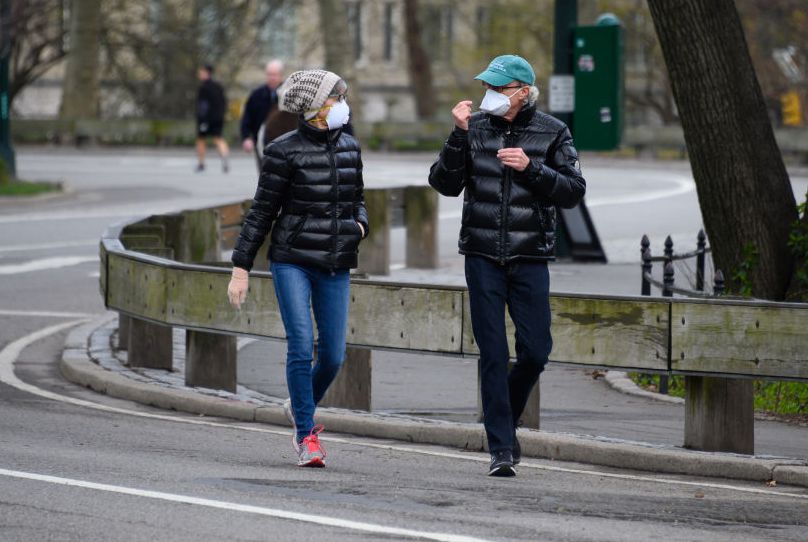U.S. Coronavirus Death Projection Reduced to 60,000 Based on Leading Data Model


The U.S. death toll from the new coronavirus, COVID-19, is now projected to be 60,000, a significant drop from earlier projections.
Health officials had said in late March that their leading model, from the Institute for Health Metrics and Evaluation at the University of Washington, estimated that 100,000 to 200,000 Americans would die by the end of the summer, and that the peak number of deaths would come in the middle of April.
But new data from the same IHME model pointed toward 60,400 deaths by the end of August, with a peak of 2,200 deaths occurring on Sunday, April 12, The Washington Post reported.
As of Wednesday afternoon, there are at least 418,000 confirmed cases of COVID-19 and 14,000 deaths, though both numbers are believed to be significantly higher that what has been recorded due to a lack of testing.
There are, however, asterisks to the new numbers. The IHME model, which predicts the peak in deaths in each state, has been questioned for its accuracy. In Colorado, health experts said that the IHME model says their peak has already passed, which they do not agree with. Washington, D.C. is also using a different model that suggests the peak will occur in late May, while the IHME model says it will be soon, in mid-April, the Post reported.
Additionally, the IHME model does not offer predictions past the summer, and many experts have warned that the U.S. could see a second wave of COVID-19 spread in the fall. Plus, the model is reacting to stay at home orders that are in place across most of the country, and if states lift them too soon, the projected death toll could go back up.
Anthony Fauci, director of the National Institute of Allergy and Infectious Diseases, emphasized on Wednesday morning that the revised numbers do not mean that social distancing should stop.
“We’re going to start to see the beginning of a turnaround, so we need to keep pushing on the mitigation strategies because there’s no doubt that that’s having a positive impact,” he said on Fox News.
“Now’s not the time to pull back at all,” he added. “It’s a time to intensify.”
As information about the coronavirus pandemic rapidly changes, PEOPLE is committed to providing the most recent data in our coverage. Some of the information in this story may have changed after publication. For the latest on COVID-19, readers are encouraged to use online resources from CDC, WHO, and local public health departments. To help provide doctors and nurses on the front lines with life-saving medical resources, donate to Direct Relief here.
Source: Read Full Article